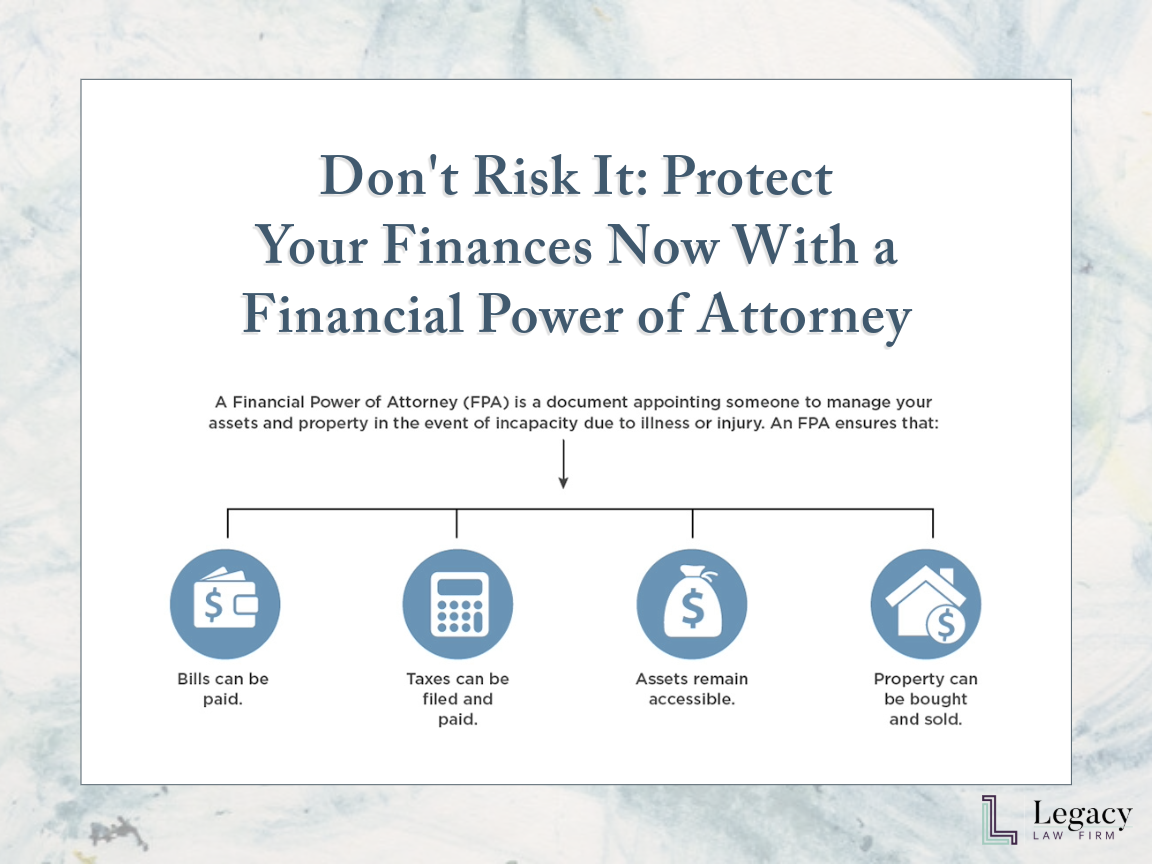
Navigating After Loss:
Understanding Probate
Losing a loved one is already difficult, and legal matters like probate can add confusion to an already emotional experience. You may be wondering what probate is and if you need to go through the process.
What is Probate?
Probate is the court-supervised process following an individual's passing that ensures assets are properly distributed and all outstanding debts are paid. The probate process follows the same general format regardless of whether there is or isn’t a will, just with slight variations.
How Does Probate Work in Western North Carolina?
In North Carolina, when there is an uncomplicated estate, the probate process primarily consists of:
Filing the Petition: To initiate probate, a petition needs to be filed with the court. After the estate is opened, the fiduciary must file an inventory of assets as well as annual and final accountings. The court oversees the probate process and audits the fiduciary’s actions to ensure that they are properly performing their duties. This may sound complicated, but we can guide you through the process.
Appointing a Personal Representative: The court appoints a personal representative (often named in the will) to oversee the estate. This person has the legal responsibility to gather assets, pay debts, distribute assets to beneficiaries, and manage any tax filings.
Settling Debts and Distributing Assets: Probate ensures your loved one's debts are paid, and their assets, including real property, personal property, and financial accounts, are distributed as intended, either according to their will or state law. During the probate process, the fiduciary must notify creditors and gather all assets.
Do you need probate?
Probate isn't always necessary. Factors like the size of the estate and how assets are titled can determine if the estate needs to go through probate. A valid will can streamline the process, but probate may still be necessary to address certain assets.
How Long Does Probate Take?
The earliest a probate estate can be closed is immediately after the expiration of the 90-day creditor claim period. However, I’ve learned in my years of practice that probate estates on average take from six months to one year to close. Certain factors such as Medicaid Estate Recovery claims, tax returns, and unconventional assets can require a probate estate to remain open beyond one year.
The Cost of Probate: Fees Can Add Up
Probate can not only be time-consuming, but it can also be expensive depending on the total value of the probate estate. As of April 2024, the court’s fee for overseeing a probate estate is $0.40 per every $100 of value capped at $6,000. What this means is that if your probate estate totals $500,000, your estate would be required to pay the court $2,000 in addition to any filing fees. This is $2,000 that your heirs could have received if probate was avoided.
In comparison, a well-drafted estate plan that can minimize probate expenses likely will cost less than the fees your heirs will be required to pay from an intestate probate estate.
Minimizing Probate: Strategies for Success
While probate is unavoidable in some estates, below are 4 estate planning strategies you can utilize to minimize probate:
Revocable Living Trusts: Assets held in a trust bypass probate, allowing for faster distribution to beneficiaries.
Joint Ownership: Property held jointly with rights of survivorship automatically passes to the surviving owner, avoiding probate.
Beneficiary Designations: Assets with designated beneficiaries, such as life insurance policies and retirement accounts, pass directly to the named beneficiaries outside of probate.
Gifts and Transfers: Giving assets away before death or using payable-on-death accounts can reduce the size of the estate subject to probate. Note that gifting should only be used as an estate planning tool after consulting with an experienced estate planning attorney and/or financial advisor.
Remember That A Well Drafted Estate Plan Can Simplify Probate
As discussed herein, probate in North Carolina can be a complex and time-consuming process, but understanding how it works and implementing proactive measures to minimize its impact can simplify the estate administration process for your loved ones. Consult with Legacy Law Firm’s experienced estate planning attorney to create an estate plan tailored to your needs while minimizing the impact of any necessary probate.
Unsure if you need probate? Legacy Law Firm is here to help.
Whether you need guidance navigating probate or simply have questions, your trusted probate attorney at Legacy Law Firm is here to provide clarity and support during this challenging time. We recommend scheduling a consultation to discuss your specific situation and determine if probate is needed.
FAQs
-
We charge a $250 consultation fee. We often spend a few hours preparing for the consultation and provide legal advice during the consultation. The consultation fee covers the time expended and the legal advice you receive.
-
The only difference between an Executor and Administrator is whether there is a will. If there is a will, the named fiduciary is called the Executor. If there is not a will, the appointed fiduciary is called the Administration. Otherwise, the duties of each fiduciary are the same.
-
If you and the other eligible beneficiaries do not wish to serve as the Executor/Administrator, we can serve in your place. We will ensure you are as involved as you would like to be and kept informed of the status of the estate administration.
-
The probate process can generally take anywhere from 4-12 months to complete. In North Carolina, if you have to open a a full estate, the earliest the probate estate can be closed is just over 90 days after the Clerk’s office opens the estate. Occasionally estates must remain open beyond 12 months if there are assets or requirements that cannot be completed within 12 months.
-
Yes! We frequently work with purchasers, closing attorneys, and title insurance companies to open either a limited probate or a full probate to allow you to sell your inherited property. The type of probate we can open depends on many factors. If you are under a deadline, please let us know and we can expedite the process!
-
Yes. We've worked with many personal injury attorneys and clients to open the appropriate probate estate to allow you to file a lawsuit and/or accept settlement funds.















